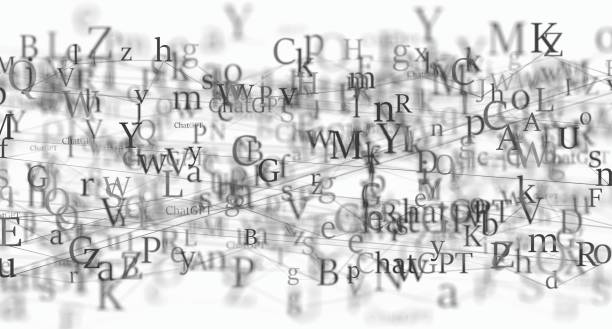How Accurate Are Random Word Generators?

Random word generators are popular tools used by writers, educators, and language enthusiasts for a variety of purposes, including brainstorming, vocabulary building, and creative writing. While these tools offer a fun and often useful way to generate content, questions about their accuracy and reliability often arise. This article explores the accuracy of random word generators, examining their underlying mechanisms, potential biases, and practical applications.
Understanding Random Word Generators
A random words generator is a digital tool that produces words at random from a pre-programmed list or database. These tools can generate single words, phrases, or even entire sentences, depending on their design and functionality. They are commonly used to inspire writing, create unique usernames or passwords, and support language learning exercises.
The Mechanisms Behind Random Word Generators
1. Algorithms and Databases
The accuracy of a random word generator largely depends on the quality of its algorithm and the comprehensiveness of its word database. Most generators use algorithms that select words from a database based on a randomization process. The database typically includes a wide range of words, from common to obscure, covering various parts of speech and categories.
2. Pseudo-Randomness
It is important to note that most random word generators are not truly random but rather pseudo-random. True randomness is difficult to achieve in a digital environment because computers use deterministic processes. Pseudo-randomness is generated using algorithms that produce sequences of numbers that only approximate true randomness. For most practical purposes, pseudo-randomness is sufficient and appears random to human users.
Evaluating the Accuracy of Random Word Generators
1. Word Selection
The primary measure of accuracy for a random word generator is how well it can produce a wide variety of words without favoring certain types over others. An accurate generator should have a balanced distribution, ensuring that no single word or category of words is overrepresented.
2. Relevance and Usability
Accuracy can also be evaluated based on the relevance and usability of the generated words. For writers and educators, the words need to be appropriate for their intended use. A generator that consistently produces obscure or irrelevant words may be less useful, even if it is technically random.
3. Bias and Distribution
Bias in random word generators can stem from the initial word database. If the database is biased towards certain words, themes, or parts of speech, the output will reflect that bias. A truly accurate random word generator should have a well-curated and diverse word database to minimize bias and ensure a fair distribution of words.
Common Uses and Accuracy Considerations
1. Creative Writing and Brainstorming
For creative writing and brainstorming, the accuracy of a random word generator is often less critical than its ability to inspire. Writers may not mind if a generator occasionally produces obscure or unusual words, as these can prompt unique and creative ideas. However, consistency in generating a variety of words is still important to keep the creative process flowing.
2. Language Learning
In language learning, accuracy becomes more crucial. Learners rely on random word generators to expand their vocabulary and practice different language skills. An accurate generator should produce words that cover a broad spectrum of vocabulary levels and language components, ensuring that learners are exposed to a comprehensive range of words.
3. Password and Username Creation
For password and username creation, accuracy is defined by the generator’s ability to produce truly random and secure outputs. Security-focused generators need to ensure that their algorithms do not produce predictable patterns or reuse words frequently. Pseudo-randomness is generally sufficient, but the underlying algorithm must be robust to prevent any potential security vulnerabilities.
Improving the Accuracy of Random Word Generators
1. Expanding and Updating Databases
One of the most effective ways to improve the accuracy of a random word generator is to expand and regularly update its word database. Including a wide variety of words from different categories, parts of speech, and frequency levels can help create a more balanced and unbiased output.
2. Refining Algorithms
Improving the randomization algorithm can also enhance accuracy. Using advanced techniques to ensure pseudo-randomness can minimize the risk of predictable patterns and biases. Developers can implement more sophisticated random number generators and ensure that the selection process is as unbiased as possible.
3. User Feedback and Customization
Incorporating user feedback can help refine the tool and address any issues with word selection and relevance. Customization options, allowing users to specify the types of words they want to generate (e.g., nouns, verbs, adjectives), can also improve the utility and accuracy of the tool for different applications.
Potential Limitations and Considerations
1. Language and Cultural Biases
Random word generators can inadvertently reflect language and cultural biases present in their word databases. Ensuring a diverse and inclusive database that represents different dialects, cultures, and contexts can help mitigate these biases.
2. Contextual Accuracy
While random word generators can produce individual words accurately, they often lack the ability to generate words in meaningful contexts. For tasks that require contextual coherence, such as writing sentences or paragraphs, additional tools or human intervention may be necessary to ensure accuracy and relevance.
Conclusion
Random word generators are valuable tools with a wide range of applications, from creative writing to language learning and beyond. While they are not truly random, their pseudo-randomness is generally sufficient for most practical purposes. The accuracy of these generators depends on the quality of their word databases and algorithms. By expanding and updating databases, refining algorithms, and incorporating user feedback, the accuracy of random word generators can be improved. However, users should be aware of potential limitations, including language and cultural biases and the lack of contextual accuracy. Overall, random word generators can be highly effective and reliable tools when used appropriately, providing inspiration and support for various creative and educational endeavors.



